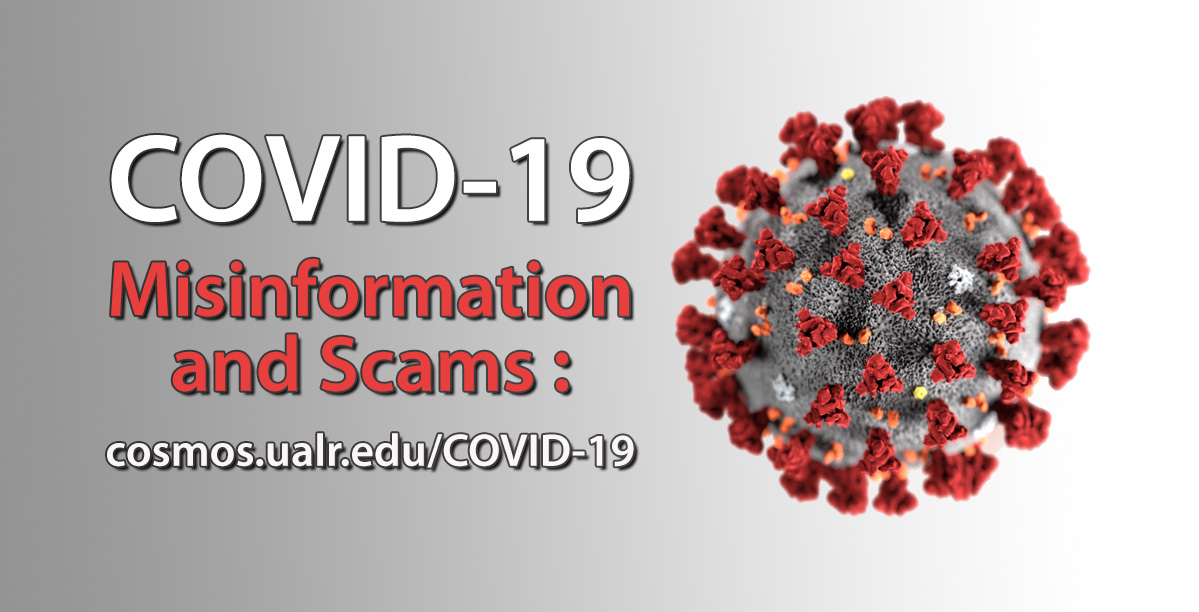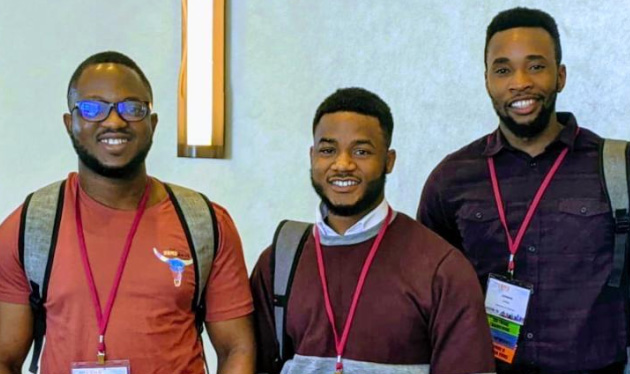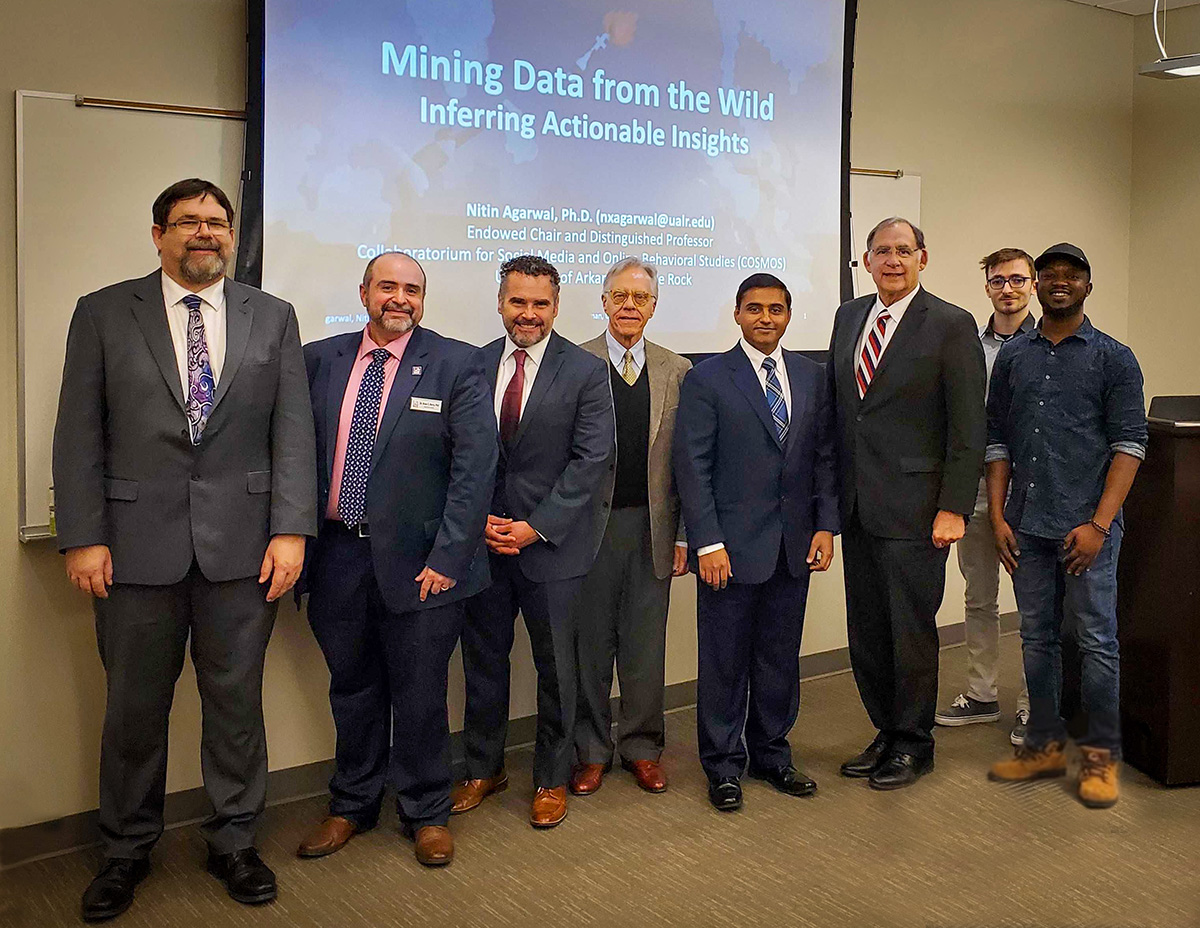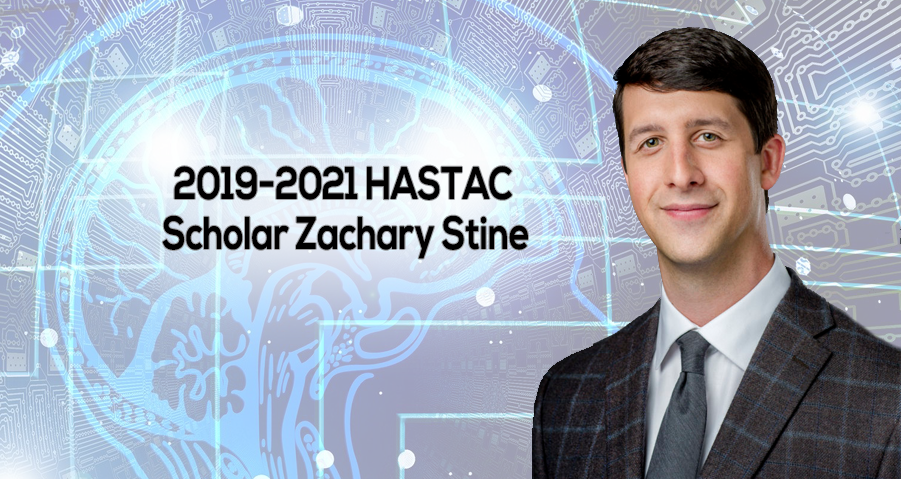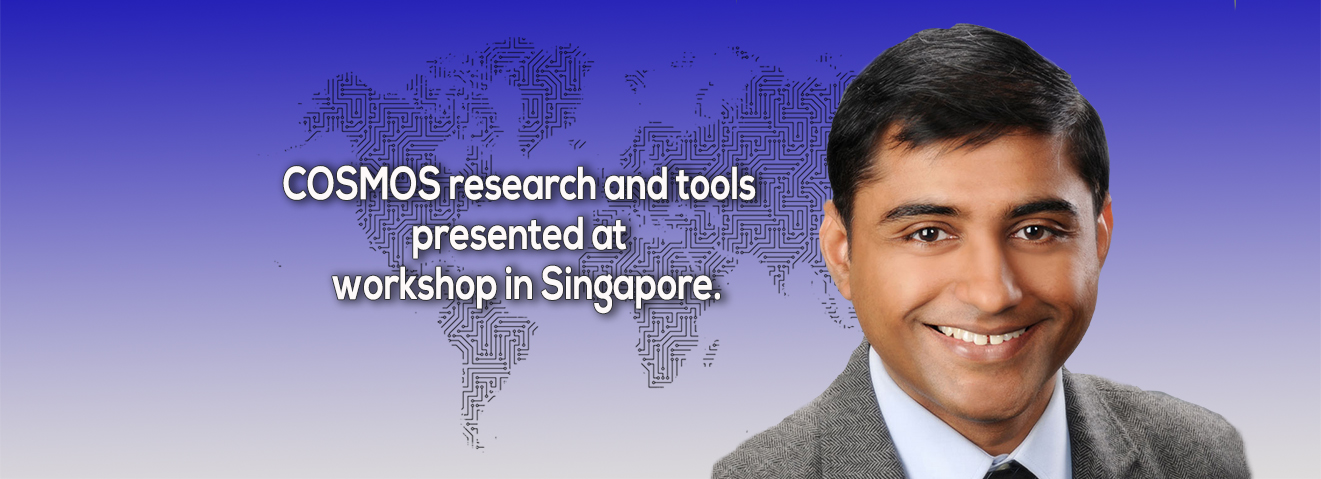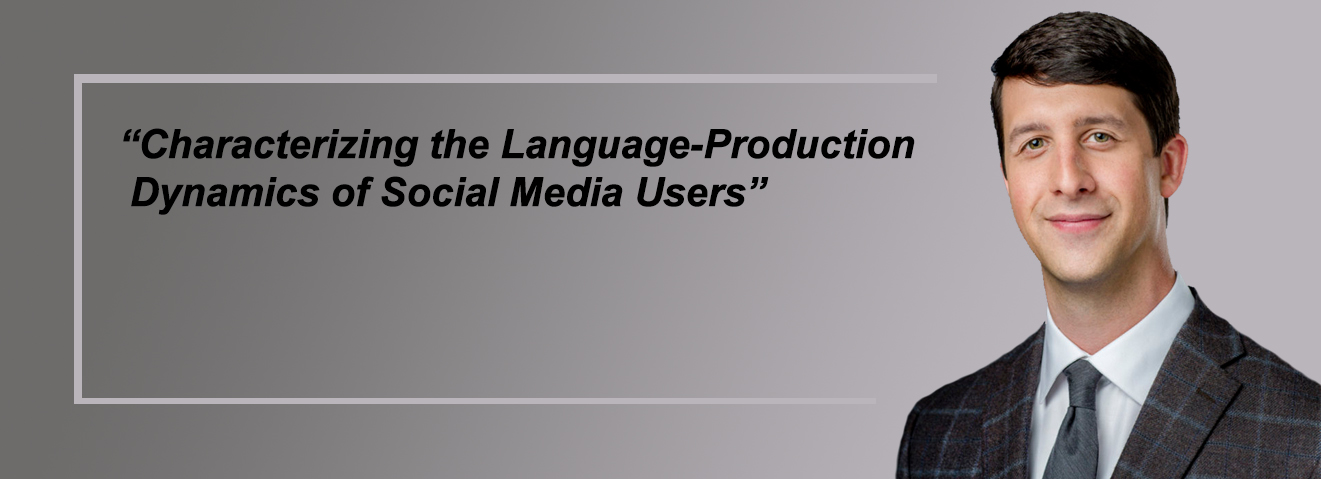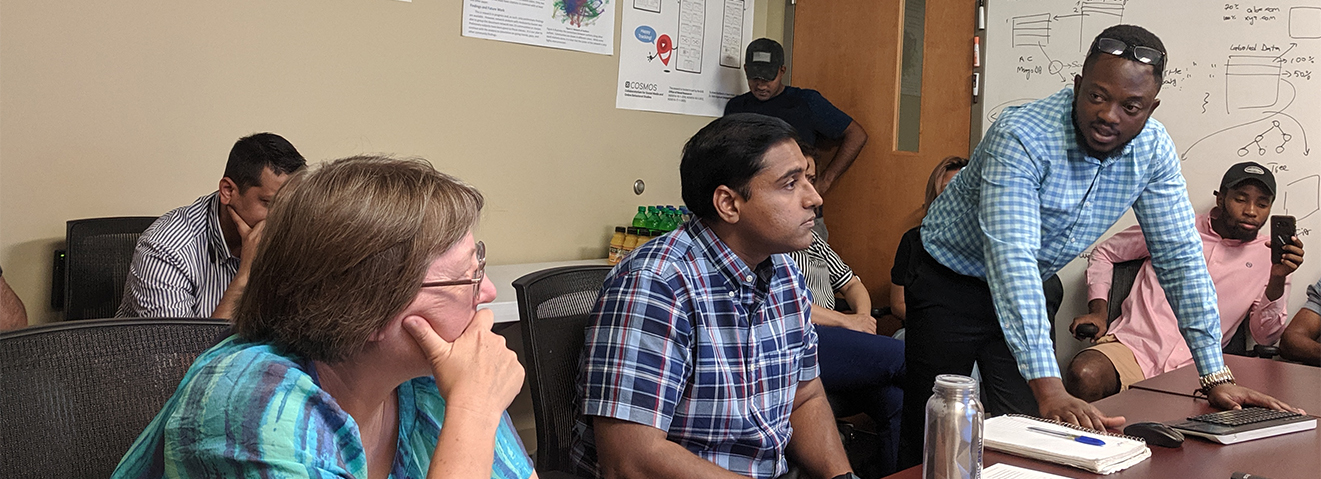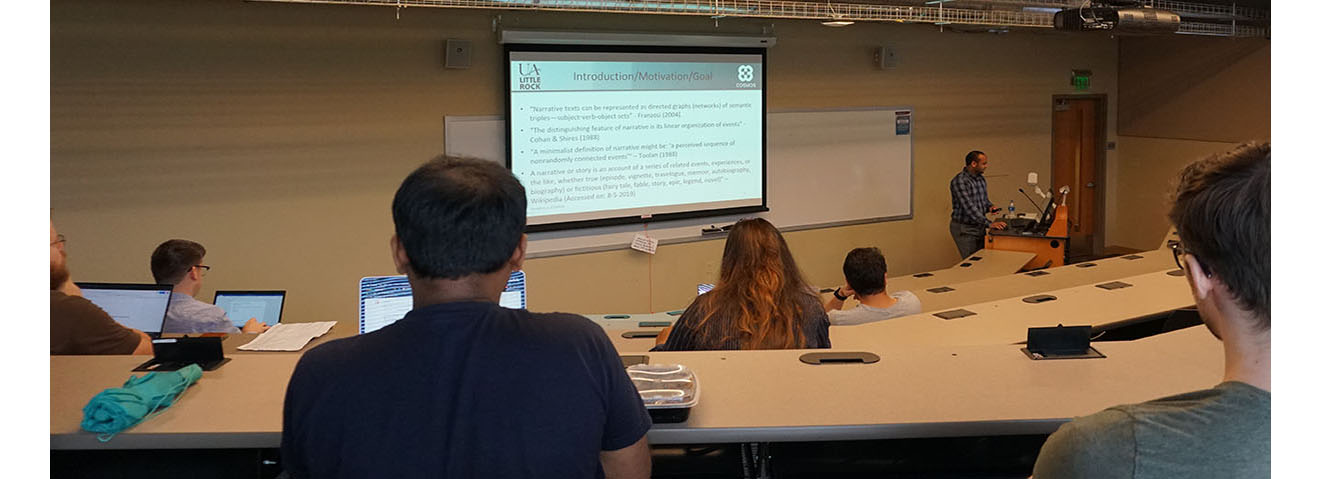Arkansas Attorney General partners with COSMOS to Track False COVID-19 Websites and Online Scams.
Arkansas Attorney General Leslie Rutledge today announced a partnership with the University of Arkansas Little Rock (UALR) and the Arkansas Research Alliance to identify and track scam websites and social media misinformation related to COVID-19 that have rapidly spread with the pandemic. Misinformation posted on websites and social media has been spreading quickly. False claims, misleading information and the sale of fake cures and treatments undermine Arkansas’ efforts to combat this disease and present a hazard to consumers’ physical, financial and online safety. The collaboration with COSMOS offers a new avenue to quickly identify the bad actors who want to spread misinformation or steal consumers’Read More →

